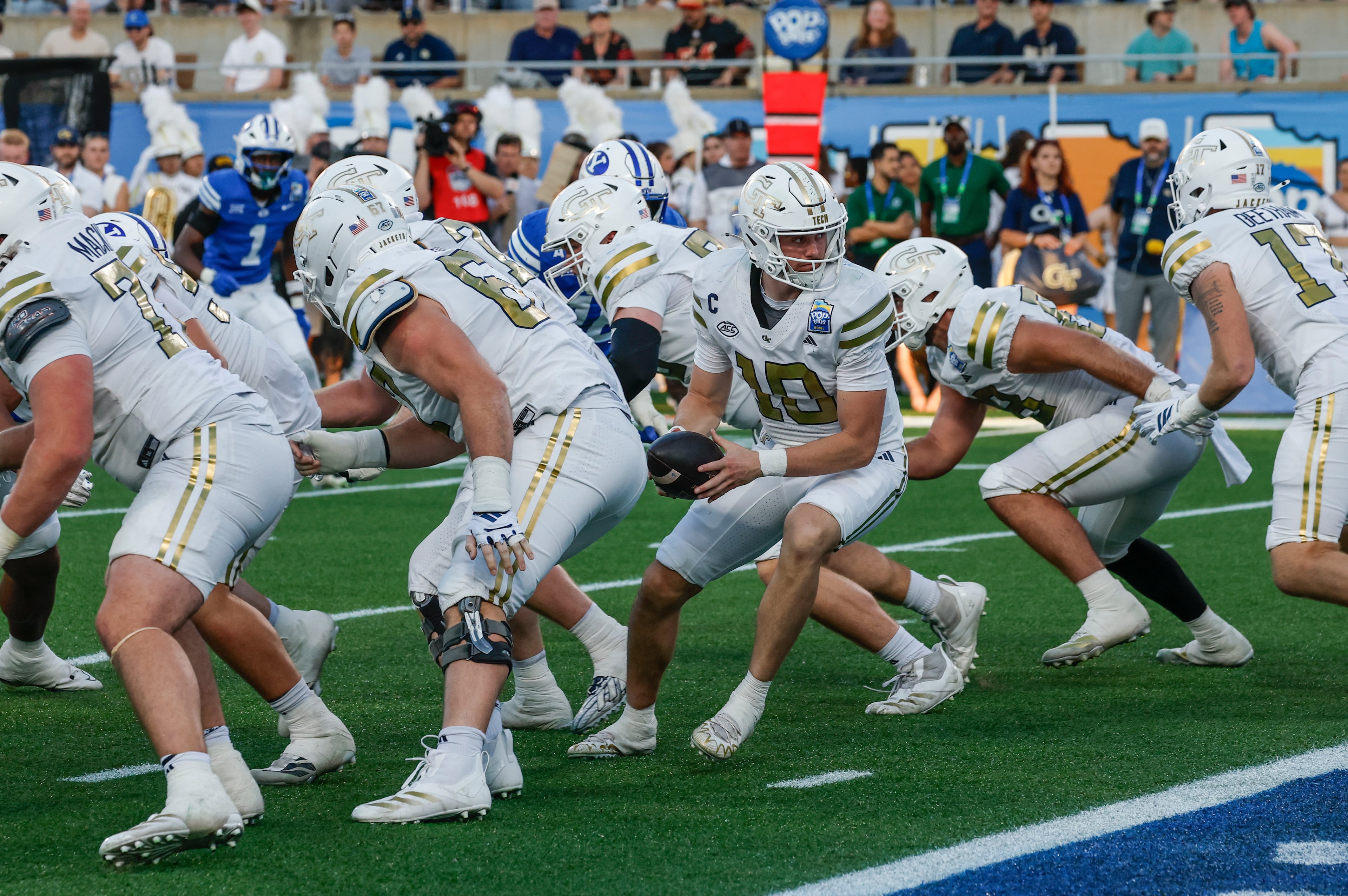Financial pressures heighten on Georgia Tech athletic department

With obvious pride, Georgia Tech athletic director Todd Stansbury narrated a series of photos, videos and slides sure to please any Yellow Jackets fan. On a videoconference for the athletic association board meeting Thursday, Stansbury raved about the new women’s basketball locker room and the progress of renovations at Russ Chandler Stadium.
He touted the successes of some of Tech’s teams and athletes, such as the women’s cross-country team’s second-place finish at the ACC championships, the volleyball team finishing its fall season ranked tied for sixth nationally and former Tech golfer Andy Ogletree claiming low-amateur status at the Masters last week.
“OK, well, that was the fun part,” he said with a rueful laugh. “Now we go to financial challenges.”
In an update on his athletic department’s struggles to stay financially afloat, Stansbury didn’t try to downplay the rough waters that the department is trying to navigate. The department, which spent $91 million last year, has had to trim expenses for the fiscal year to $75 million to offset the significant drop in ticket revenues because of COVID-19.
“We definitely have a serious challenge ahead of us,” Stansbury said.
The cuts often have been severe and painful. Tech’s personnel budget for fiscal year 2020 – which ended at the end of June – was $32.5 million (spending ended up at $34.7 million). The initial FY 2021 budget proposed spending $29.3 million on personnel, a cut of about 10% from the previous year. The revised budget has reduced the allotment even further, to $26.1 million, a 20% slice off last year’s budget.
Tech previously was prepared to participate in a furlough program authorized by the University System of Georgia, but the system called off the plan in June. The department now faces having to institute its own measures.
No employees have been laid off, as Stansbury has avoided a decision that many of his colleagues have enacted. Part of the cuts have been covered by 16 vacant positions that have not been filled. The athletic department also is “evaluating various cost-saving strategies within the personnel area due to our current financial position,” senior associate AD Marvin Lewis wrote in an email.
The recruiting budget has been cut by 50%, Stansbury said, although NCAA’s prohibiting coaches from seeing recruits in person (both on campus and away from campus) has created automatic savings, whether desired or not. Likewise, a reduction in travel because of shortened or eliminated seasons has helped.
Yellow Jackets athletes have had their summer-school options reduced, and the incidental-meal program has been suspended. Budgets for administrative units and sports programs have been cut by up to 40%, Stansbury said.
As is the case with businesses and organizations worldwide, the athletic department is facing decisions it scarcely could have imagined less than 12 months ago. After facing budget shortfalls because of the football-coaching transition from Paul Johnson to Geoff Collins dropped the reserve fund $3.9 million in the red by June 2019, Tech was ready for the 2020-21 academic year to bring relief.
With the start of the football team’s series at Mercedes-Benz Stadium (beginning with a game against Notre Dame), two summer concerts at Bobby Dodd Stadium, the men’s basketball game against Kentucky at State Farm Arena and the advent of alcohol sales throughout Bobby Dodd Stadium, Stansbury anticipated a boost of $4-5 million in new revenue. Stansbury’s $125 million capital campaign, responsible for the funding for projects such as the aforementioned facilities upgrades, was nearing completion.
“And, of course, our life changed, as well as everybody else’s,” Stansbury said.
As is the case with all major-college athletic departments nationwide, COVID-19′s impact on bottom lines began in March with the cancellation of the NCAA tournament and has only cut deeper. With capacity to Bobby Dodd Stadium limited to 20% because of social-distancing protocols, ticket sales (including associated revenue like TECH Fund donations) are projected to be $8.2 million, a far cry from the $19.8 million received last year. If the department can break even this year, the reserve fund will remain at a $13.6 million deficit.
In that light, every football and basketball home game – such as the postponed Pitt game – matters as much to the department as it does to the team, not only for ticket and ancillary revenues, but as content delivered to the ACC Network and ESPN.
“Not just from a personnel perspective and our student-athlete experience, but financially, every game that we play is a win, and that includes football and basketball,” Lewis said.
That also is why Stansbury has sought to bring attention to the Support the Swarm campaign, which has asked fans to convert money spent or earmarked for ticket purchases into donations to the athletic department. Thus far, about $1.7 million has been donated. Stansbury’s goal is for that total, along with actual ticket sales, to hit $15 million. The total of ticket sales plus donations stands at $9.2 million.
Stansbury did see light ahead. He said that he was in conversations for three potential corporate partnerships “that I think can help us in a pretty significant way.” He also said that the department has been in discussions to bring concerts and other potentially profitable events back to Bobby Dodd Stadium when the state, city and health agencies permit such gatherings again. The ACC Network provided an extra $4 million in distributions from the conference, which totaled $29.7 million and figures to increase.
And, as posted on a slide listing plans to aid financial recovery – in an all-caps bullet point – “WINNING.”
“Winning makes money,” Stansbury said. “And so, at the end of the day, we’ve got to somehow find a way to continue to build our programs so we protect (athletes) and they’re able to continue to compete at the highest level.”



